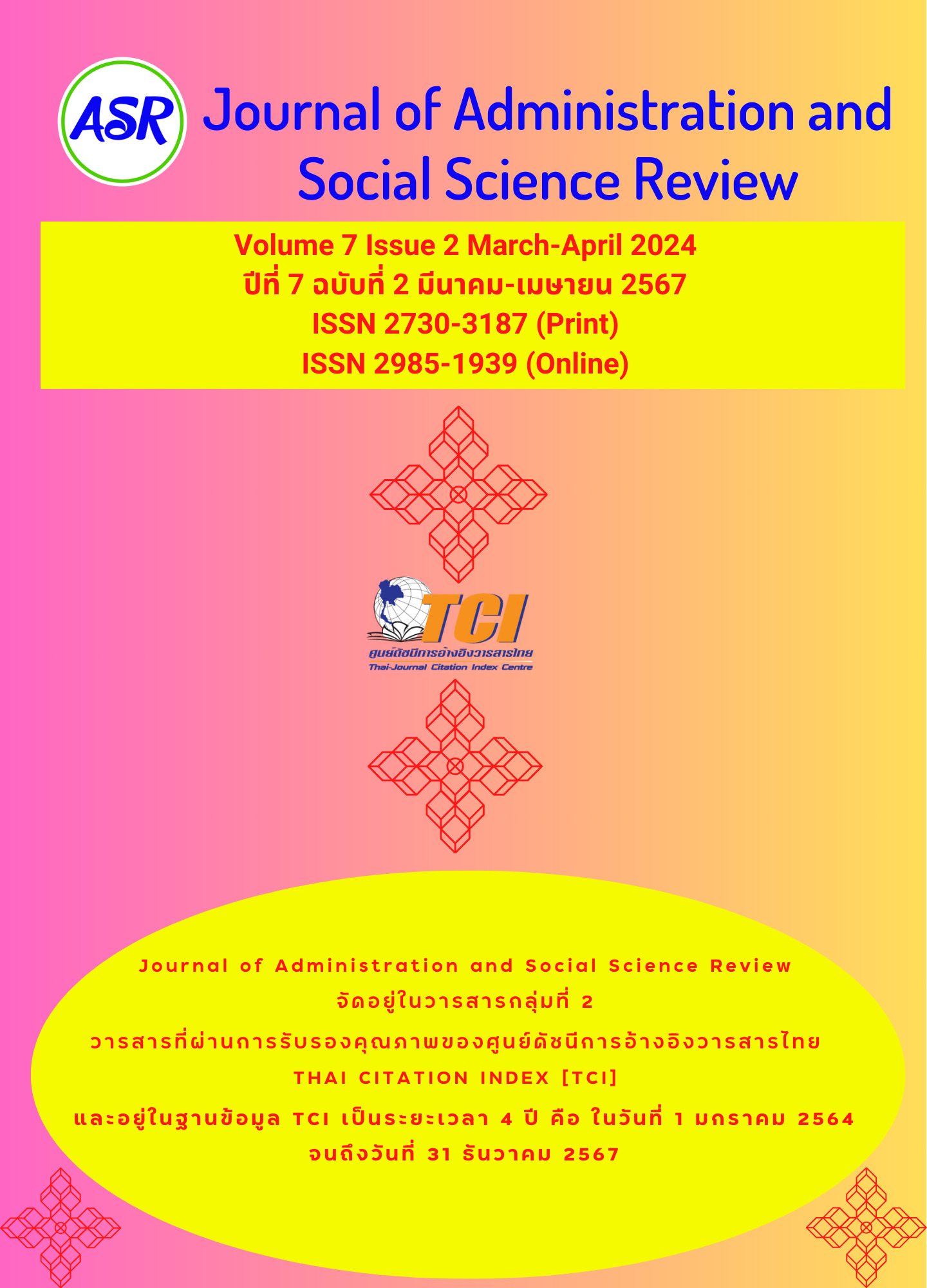The Leadership Development for School Administrators in A VUCA World of Schools under Nakhon Pathom Primary Educational Service Area Office1
Keywords:
Leadership development, school administrators in a VUCA WorldAbstract
The purposes of this research were to study the actual conditions and expectations of the leadership development of school administrators in a VUCA World, evaluate the need for the leadership development of school administrators, and provide guidelines for improving the leadership of school administrators in a VUCA World. The sample consisted of school directors and teachers in schools under the Nakhon Pathom Primary Educational Service Area Office 1. The sample group, selected through stratified random sampling, consisted of 302 subjects and the qualitative study group was composed of 10 qualified people. The research instruments for data collection were sets of questionnaires and the interviews. Statistics for data analysis were frequency, percentage, mean, standard deviation (SD), and PNI Modified: Modified Priority Needs Index.
The results showed that
- the actual conditions and conditions, expected of the leadership of school administrators in a VUCA world with consideration of individuals and overall, were at a high level.
- Assessment of development needs for the leadership of school administrators in a VUCA world of schools in Nakhon Pathom Primary Educational Service Area Office 1, sorted by the priority with index PNI modified, had the followings: a flexibility in learning (PNI modified = 0.021), and the ability to share goals and vision (PNI modified =0.019), the competency of working as a team (PNI modified =0.018), modernity and awareness of changes (PNI modified =0.018), and the perspective of the world and a positive attitude (PNI modified = 0.16). Lastly, there was flexibility and adaptability (PNI modified =0.013).
- Leadership development guidelines for the school administrators in a VUCA world include self-learning, training, and seminars on leadership development courses, developing skills in using technology and practice analyzing, planning, and making decisions in various situations, knowledge exchange (PLC), creating a collaborative culture, and developing communication skills.



